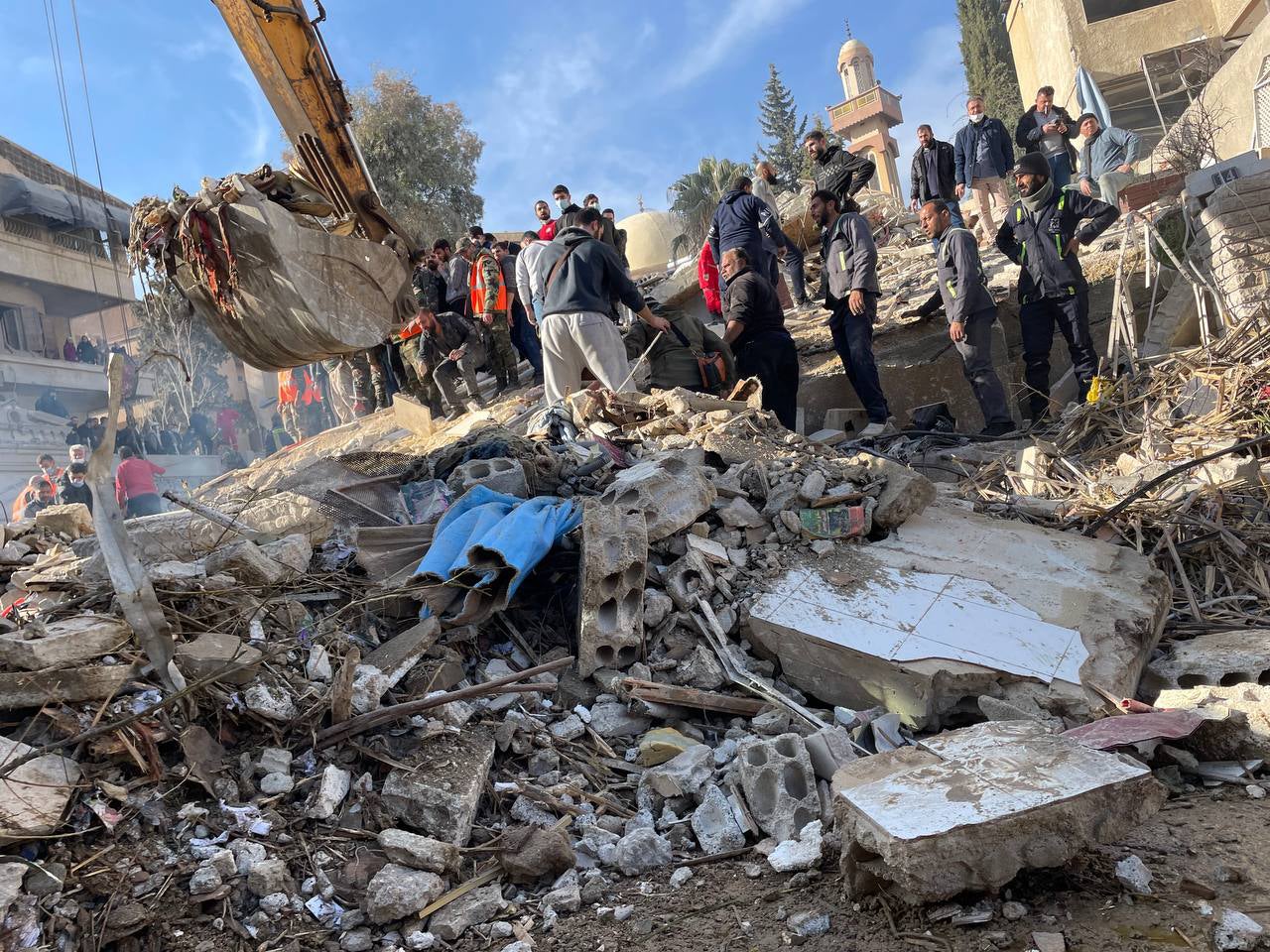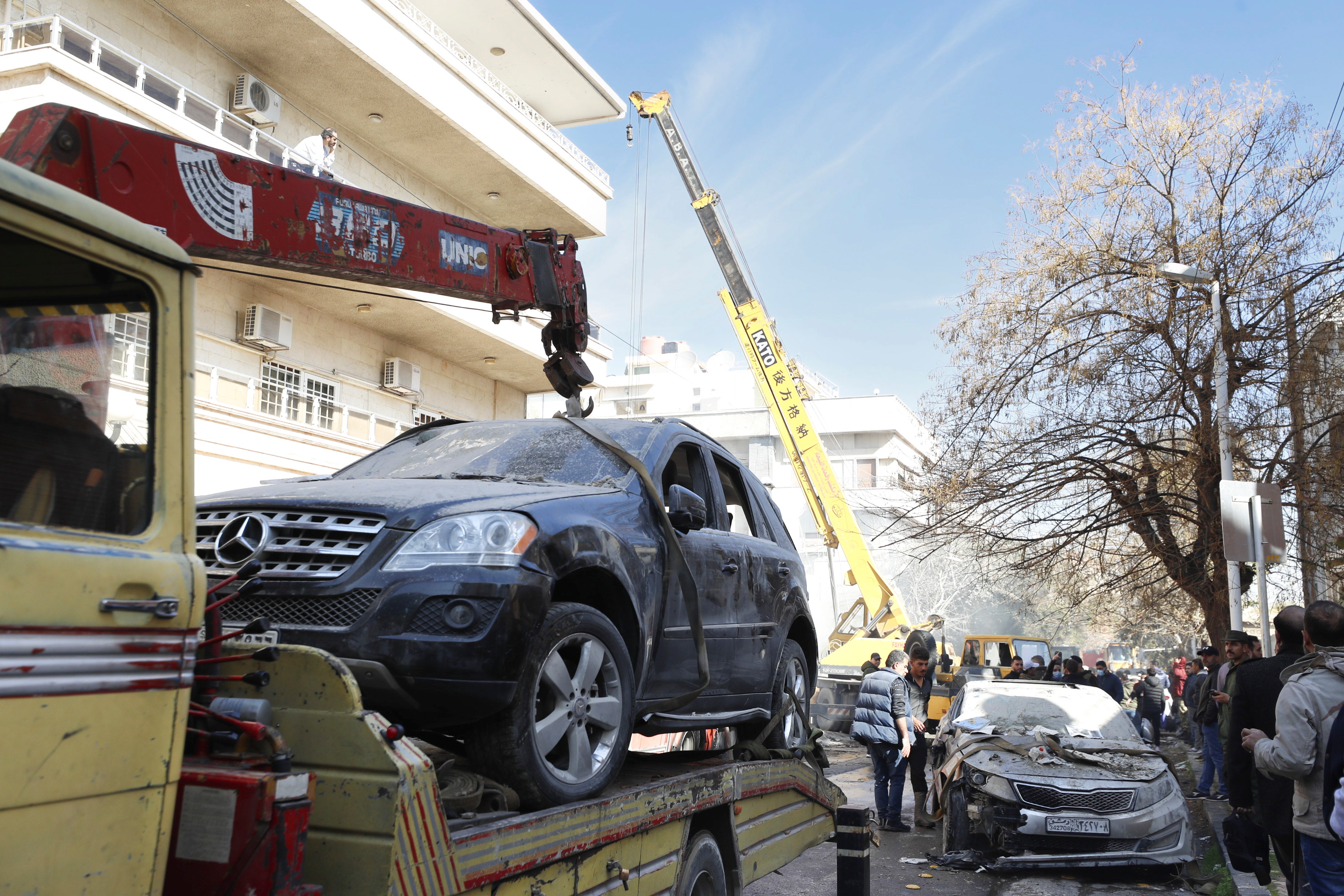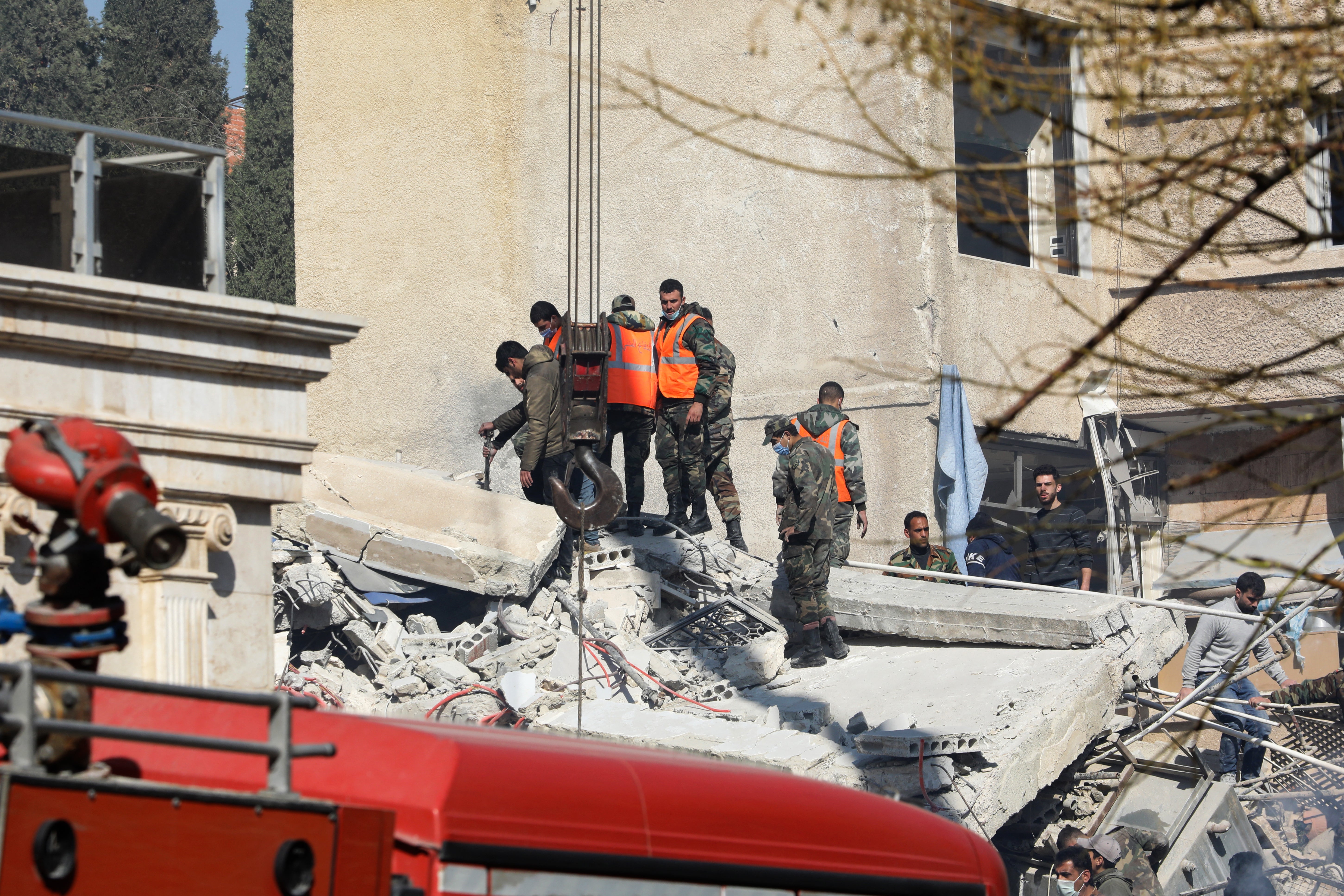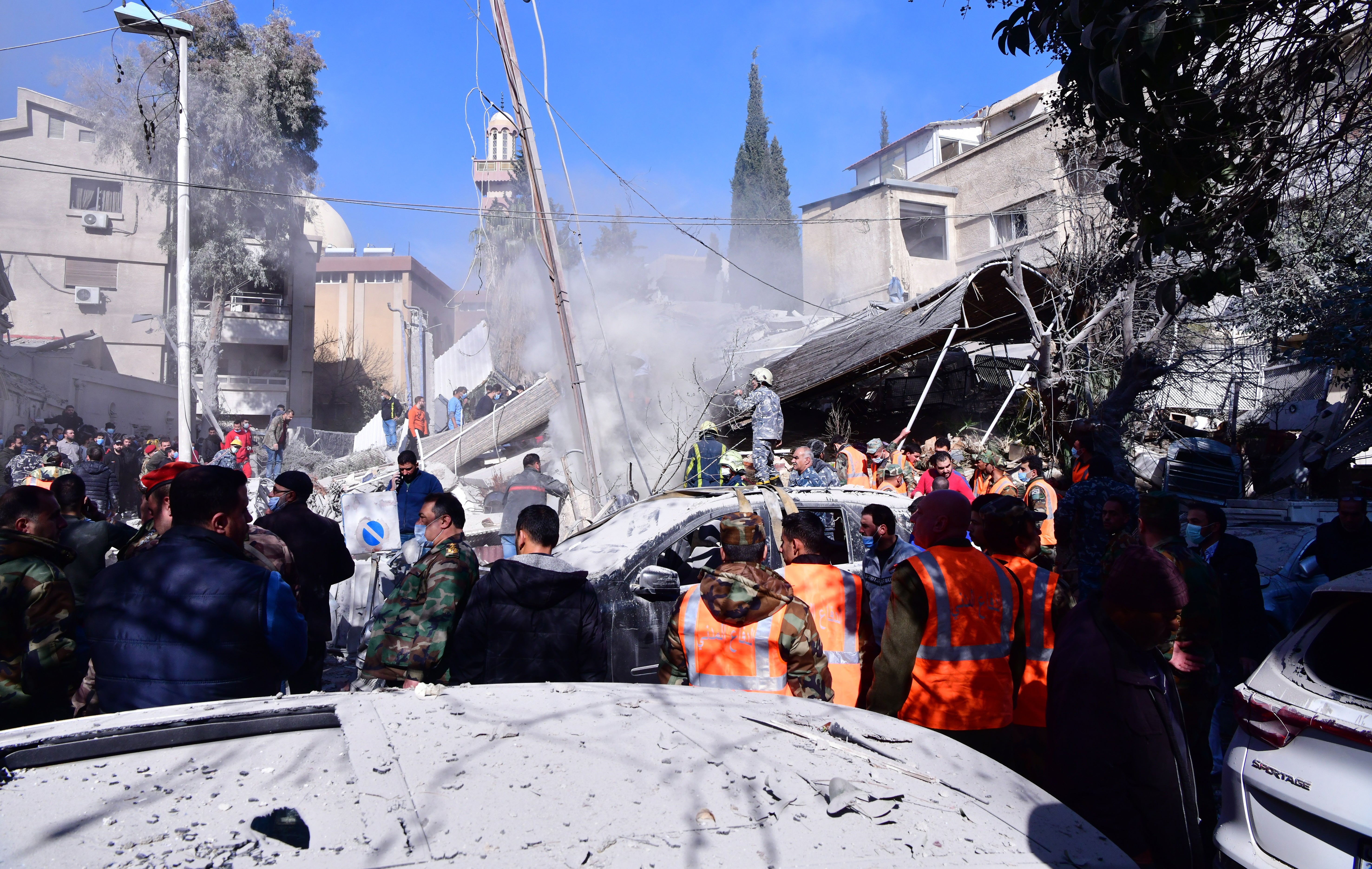Iran accuses Israel of killing spy chief in missile attack on Damascus
Tehran says five members of its Islamic Revolutionary Guard Corps were killed in the strike on the Syrian capital as tensions continue to escalate across the region
The president of Iran has vowed to take revenge after blaming Israel for an airstrike that killed an Iranian intelligence chief on Saturday, as tensions across the region continue to escalate over the war in Gaza.
The Syrian army said a building in the tightly-guarded western Damascus area of Mazzeh, used by the Iranian paramilitary Revolutionary Guard, was destroyed, killing three senior commanders and two others.
Among those killed was Gen Sadegh Omidzadeh, the intelligence deputy of the guard’s expeditionary Quds Force in Syria, according to Nour News, which is believed to be close to the country’s intelligence apparatus. His deputy, who goes by the nom de guerre Hajj Gholam was also killed.

An unspecified number of Syrian troops were also dead, it was reported.
Following the attack, which Israel has not commented on, missiles were then launched at US forces based in Iraq by Iran-backed militants in the country, according to the US Central Command.
A number of US military personnel suffered minor injuries and a member of Iraq’s security forces was also wounded in the airstrikes on Ain al-Asad air base in Iraq on Saturday.
The US Central Command said attacks were launched with ballistic missiles and rockets. While most were intercepted some evaded the air defence and struck the base that had a number of US soldiers.
It said an unspecified number of personnel are “undergoing evaluation for traumatic brain injuries”.
The strike on the base in Iraq was claimed by a newly-formed group Islamic Resistance in Iraq. The group is made up of several Iran-affiliated armed groups operating in Iraq after emerging only in late 2023 since the Israel-Hamas conflict.

Since the Israel-Hamas war began in October, the US military has come under attack at least 58 times in Iraq and another 83 times in Syria.
A few hours later, four people, including a Hezbollah member, were killed in an Israeli drone strike on a car near the southern Lebanese port city of Tyre, an official with the group and Lebanon’s state news agency said.
One of those killed was, Ali Hudruj, a local Hezbollah commander, said the official, who spoke on condition of anonymity in line with regulations, without giving further details.
In a statement, Iran’s president Ebrahim Raisi condemned the airstrike in Syria, adding that “the Islamic Republic will not leave the crimes of the Zionist regime unanswered”.
An opposition war monitor, the Syrian Observatory for Human Rights, said at least six people – five Iranians and a Syrian – were killed in the missile attack that struck while officials from Iran-backed groups were holding a meeting.
Iranian Foreign Ministry spokesperson Nasser Kanaani responded to the Israeli strike in a statement, saying that “without any doubt, the blood of these high-ranking martyrs will not be wasted”.
He added that Tehran “reserves its right to respond to the organised terrorism of the fake Zionist regime at the appropriate time and place”.

Iran also tried again to link Israel to Isis, something its leaders have been trying to do since a suicide bombing by the extremists in early January in Iran killed more than 90 people.
Syrian state TV reported that the “Israeli aggression” targeted a residential building in Mazzeh, home to several diplomatic missions. Saturday’s strike was close to the embassies of Venezuela and South Africa.
Security forces were deployed around the destroyed four-storey building as ambulances and fire engines were seen in the area. A search for people trapped under the rubble took place.
A grocer near the scene of the strike said he heard five consecutive explosions at about 0915 local time (0615 GMT), adding that he later witnessed the bodies of a man and a woman being taken away as well as three injured people.


The strike came amid widening tensions in the region as Israel pushes ahead with its offensive in Gaza. The war has stoked tensions across the region, threatening to ignite other conflicts.
Last month, an Israeli airstrike on a suburb of Damascus killed Iranian general Seyed Razi Mousavi, an adviser of the Iranian paramilitary Revolutionary Guard in Syria. Israel has also targeted Palestinian and Lebanese operatives in Syria over the past years.
Iranian and Syrian officials have long acknowledged Iran has advisers and military experts in Syria, but denied there were any ground troops. Thousands of fighters from Iran-backed groups took part in Syria‘s conflict that started in March 2011, helping tip the balance of power in favour of President Bashar Assad.
Israeli attacks in Syria are rarely acknowledged by Israel, but it has said that it targets bases of Iran-allied militant groups, such as Lebanon’s Hezbollah, which has sent thousands of fighters to support Mr Assad’s forces.
Earlier this month, a strike said to be carried out by Israel killed top Hamas commander Saleh Arouri in Beirut.
Over the past weeks, rockets have been fired from Syria into northern Israel and the Israeli-occupied Golan Heights, adding to tensions along the Lebanon-Israel border and attacks on ships in the Red Sea by Yemen’s Iran-backed Houthi rebels.
Join our commenting forum
Join thought-provoking conversations, follow other Independent readers and see their replies
Comments
Bookmark popover
Removed from bookmarks